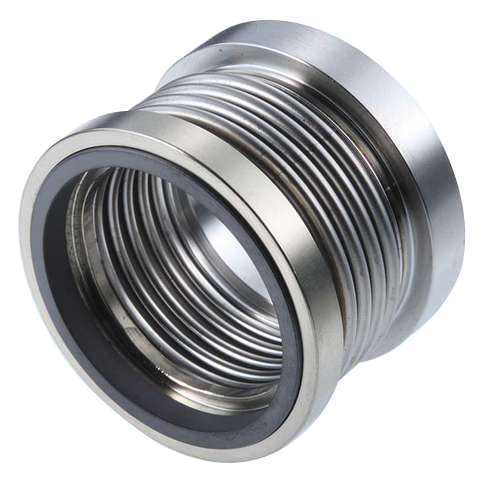Leakage at various points in pipelines found in chemical plants creates emissions. All such leakage points can be detected using various methods and instruments and should be noted by the plant engineer. Critical leakage points include flanged gasket joints and the Valve / pump gland packing, etc. Today the chemical process industry is gearing itself towards safer technology for better environmental protection and it has become every process engineer's responsibility to design plants that limit damage to the environment through the prevention of leakage of any toxic chemicals.
There are two main types of bellow: the Forged Bellow and the Welded Bellow. Formed-type bellows are made from rolling a flat sheet (thin wall foil) into a tube which is then longitudinally fusion welded. This tube is subsequently mechanically or hydrostatically formed into a bellow with rounded and widely spaced folds. The welded leaf type bellow is made by welding washer-like plates of thin metal together at both the inner and outer circumference of the washers - like plates. A welded leaf bellow has more folds per unit length as compared to forged bellows. Thus, for the same stroke length, forged bellows are two to three times longer than their welded leaf counterparts.
The most popular stainless steel bellow material is AISI 316Ti which contain Titanium to withstand high temperatures. Alternatively, Inconel 600 or Inconel 625 improve fatigue strength and corrosion resistance as compared with stainless steel bellows. Similarly, Hastalloy C-276 offers greater corrosion resistance and fatigue strength than Inconel 625. Fatigue resistance can be improved by using a multiply bellows system and reducing the stroke length; this can significantly increase the bellow service life.

©Copyright 2020 Apollo Sealing Industry. All right reserved.
Website Developed by: Virender Yadav